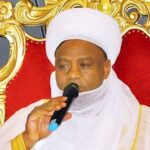Although the image crisis that haunts President Muhammadu Buhari, especially outside his political strongholds, predated his presidency, he’s fundamentally uninterested in proving critics and sceptics wrong. Instead, he remains the designer of his troubles.
Barely two months through his first tenure, at the United States Institute of Peace (USIP) headquarters in Washington, DC, to discuss his government’s counterterrorism proposals, he answered a question that has come to define him. He was asked to explain his solution to the question of Niger Delta and the fear of inequality under his watch. “I hope you have a copy of the election results”, he said, referring to the curious member of the audience, “Naturally, the constituencies… that gave me 97% (of their votes) cannot, in all honesty, be treated on some issues with constituencies that gave me 5%.”
If one had given him benefit of the doubt for that “Freudian slip,” his response to the massacre of Shiites in Zaria about five months after de-marketing his brand in the United States, confirmed that he doesn’t give a damn about optics. During his maiden media chat, with investigations into the extrajudicial killings of hundreds of his citizens by the Nigerian Army still in progress, he asked why the members of Sheikh Ibrahim El-Zakzaky-led Islamic Movement of Nigeria would touch the chest of a military officer. They were no longer alive to answer his question, and that episode must’ve had the world flipping through the charge sheets to document a mass murder under his watch.
The unscripted Buhari has long been unmasked as a PR disaster, but the solution isn’t this dangerous silence that has produced local champions striving to take advantage of his missing assurances. Whatever success his government seeks to highlight in the war against Boko Haram, has been eroded by the banditry and kidnapping spreading across the country, and fueling wild conspiracy theories that harm everybody around him.
Citizen Sunday Igboho, who’s making headlines for asking the Fulani in Ibarapa Local Government Area of Oyo State, and all the Fulani stock, to leave the Southwest, has underlined the state failure Nigerian government has always rushed to deny. Even though Mr. Igboho’s method was instantly condemned by Governor Seyi Makinde, his anger was endorsed by his kinsmen and a legion of foot-soldiers has risen to his defence, along with frightening anti-Fulani sentiments.
Igboho, like the others before him, is an invention of a failing government. But the mistake in his approach is pathologizing the entire Fulani group over killings and kidnappings attributed to some renegade members. A criminal is not, and should never be, an ambassador of his people. This truth has never found a place among Nigeria’s ethnic warlords, some of whom are strangely holders of postgraduate degrees and expected to know the danger of hasty generalizations.
After the 1966 coup, the Igbo in parts of Northern Nigeria paid for the miscalculation of a few of their kinsmen, who masterminded the coup, and that unfortunate demonstration of our differences still haunts Nigeria. The Yoruba of the Southwest, who had had a cordial relationship with the North after the Nigerian civil war, also embarked on killing northerners in Southwest when General Ibrahim Badamasi Babangida annulled the 1993 presidential elections of which Chief MKO Abiola, a Yoruba man, was considered the winner. The attacks were strange because the targeted northerners voted for Abiola overwhelmingly.
Again, in 1998, northerners were also killed in riots across the Southwest after Abiola died in prison. The July 9, 1998 edition of Washington Post reported the mood in the Southwest thus: ‘You who killed Abiola will pay for what you have done,” some youths chanted, while others attacked people who spoke Hausa. Most of the dead in Lagos — and in outbreaks of violence in Abeokuta and Ibadan, cities of the Yorubas’ southwestern homeland — were said to be Hausa speakers.’
Igboho’s “activism”, if left unchecked, may reawaken the ghosts of this ugly past, especially now that every group seeks scapegoats in the maddening quests to define their real enemies. Northerners who identify with the same ethnic, regional or even political affiliation as Buhari are going to feature as the enemies throughout the rest of his years in office and the sentiments that boiled over during the #EndSARS protests, which a section of the North opposed, are a trigger we must handle with care. The recent attacks on the Hausa community in Oyigbo, Rivers State, and another just last weekend in Imo State, by a group identified as the Indigenous People of Biafra (IPOB) must also alarm us.
This is why Buhari must speak no matter his slips. The Fulani aren’t in this fix because of the criminal elements among herders alone. They are also paying for Buhari’s silence, who’s been regarded in the South as their enabler. And Femi Falana captured this during a press conference to address one of the episodes of anti-Fulani sentiments in the South. “Most of the criminals in the Southwest are southerners,” he argued. As a consistent voice of reason, he’s also alarmed by the false narratives being pushed by ethnic warlords who’ve singled out “people of Fulani extraction” for the region’s insecurity.
Opposing Sunday Igboho on a BBC programme, Mr. Falana again challenged the private citizen’s right to give quit notice to any group, for the Fulani are Nigerian citizens and entitled to the same rights as the man threatening them. “We must stop the idea of criminal profiling,” Mr Falana said. “If anybody has committed an offence or a group of people has committed an offence, we must fish them out and have them tried under the law but you can’t wake up and say all Yoruba people, all Hausa people are criminals, all Igbo people are criminals. No, it is a fallacy of generalisation.”
But the more potent solution to the question of Sunday Igboho is proactive and responsive governance. He succeeds in pathologizing the Fulani because Abuja had been silent, only this time the victims are from an ethnic group that never embraced their oppression with the superficial fatalism the North has endured Buhari despite the spate of killings and kidnappings. Aso Rock must pay attention to the South, for the essence of elections in a democracy is for citizens to have who to hold responsible when their security and welfare are at stake. When a cabin crew fails to announce flight turbulence, it’s natural for passengers to freak out or assume the worst. Nigeria is currently experiencing severe turbulence, and this isn’t the time to have an invisible and unspeaking pilot in the cockpit.

 Join Daily Trust WhatsApp Community For Quick Access To News and Happenings Around You.
Join Daily Trust WhatsApp Community For Quick Access To News and Happenings Around You.


